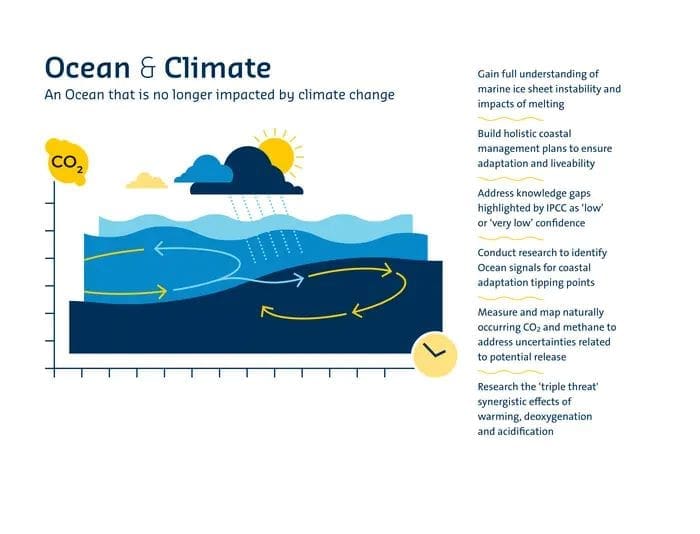Royal Netherlands Institute for Sea Research – A publication recently launched by leading European Ocean scientists, titled Navigating the Future VI (NFVI), calls attention to the fact that we do not yet sufficiently consider how climate-induced changes in the Ocean will impact how we live alongside it.
The result is that development and management plans are not able to deal with these changes. As COP29 on climate change opens in Baku, Azerbaijan, it is timely to re-consider the interactive role of the Ocean and climate in our everyday lives.

“The Ocean and coastal areas are changing much faster than previously due to climate change, and our approach to coastal planning is struggling to keep up. We need to both have insights into how climate change will affect the habitability of our coasts and have management plans that are adaptive to these ongoing changes. These plans should ensure that adaptations to climate change are appropriate and take a holistic approach to managing housing, food, fresh water and nature. Otherwise, we risk making our coastal towns unliveable,” says Katrin Schroeder, lead author of the NFVI chapter on Ocean and Climate.
Critical questions
Written by a team of European marine science and climate experts, Navigating the Future VI discusses the Ocean as part of the climate system, its critical role as a climate change mitigator, and the impacts that climate change is having on the Ocean and coasts.
This document provides governments, policymakers and funders with robust, independent scientific advice on future seas and Ocean research. The NFVI Ocean and Climate chapter highlights the need for better understanding of the links between the Ocean and climate. The chapter raises the following critical questions:
- How much and when will sea levels rise as ice sheets melt due to climate change?
- How is Ocean circulation being affected by climate change and how does this affect weather?
- Where are naturally-occurring CO2 and methane found in the Ocean and when could the Ocean start releasing them?
- What Ocean and climate research and measurements do we need to prioritise to know more about the links between the Ocean and climate?
- How will people be affected by these and other Ocean changes, and how will it impact our daily lives?
- Can we future-proof the way we live with and by a changing Ocean so that we can continue to live by the sea?
***
About NFVI
NFVI was written by experts from the European Marine Board, an independent non-governmental advisory body that represents more than 10,000 marine scientists across Europe. The publication focuses on the critical role the Ocean plays in the wider Earth system. The working group (operating from October 2022 – October 2024) comprises 33 experts from 16 European countries, covering a wide range of marine natural and social science backgrounds and career levels.
The document can be accessed at: https://www.marineboard.eu/publications/nfvi
Article Source:
Press Release/Material by Royal Netherlands Institute for Sea Research
Featured image credit: Romello Williams | Unsplash




